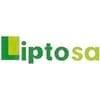
Content sponsored by:
LIPTOSA
Regulatory affairs department in an animal nutrition company: Liptosa
Published: October 26, 2023
By: Carlos López. Veterinary - Asia Manager. Technical Sales Department. Ainhoa Urbón. Veterinary - Department of Regulatory Affairs.
If there is one thing that has always characterised Liptosa, it is its entrepreneurial and innovative spirit, developing and manufacturing a wide range of solutions for the national and European market, and its firm commitment to internationalisation, reflected in its presence in more than 60 countries around the world.
There is therefore no doubt about the fundamental role played by the Regulatory Affairs Department within the company and its crucial role in launching products that are not only safe and effective, but also comply with the legislation and quality standards of Europe and the third countries to which the products are exported.
Today we have with us Mrs Ainhoa Urbón, veterinarian and Head of Regulatory Affairs at Liptosa, who will help us to go a little deeper into the daily work of her department and all that it entails.
Ainhoa, could you please you start by briefly explaining the role of a regulatory affairs department in an animal nutrition company like Liptosa?
It is the key part and the interface between European and third country legislation, as well as keeping abreast of legislative changes and authorised uses of ingredients in animal feed. It is dedicated to the legal and technical supervision of the company's product portfolio.
How important are the regulatory affairs in animal nutrition?
→ They are an essential part of the feed industry and probably one of the most overlooked. Regulatory affairs department (popularly known as "registration") needs to be involved in advisory functions from the formulation and manufacture of the product to its positioning on the market to ensure that everything is done in accordance with the legislation in force.
→ The department is responsible for being aware about the national, European and third country legislation related to the animal feed business for each type of manufactured product. It must constantly monitor the product labelling, its conformity with the legislation of the country, the ingredients or substances that could have a restricted use…
→ We will therefore always be alert to changes in feed legislation, which is constantly being updated.
→ In addition to the foregoing, the department is responsible for the preparation, revision and subsequent submission of the product information required for its registration in third countries. It is therefore in close contact with the different authorities responsible for such procedures in such countries.
In summary, RA is a key department in animal nutrition companies, as it is involved in every step of the product design, ranging from formulation to manufacturing/labelling to its marketing/export.
How has the department evolved within the company since its creation?
The growth of the RA department in Liptosa has gone hand in hand with the increased number of markets the company is exporting to, since in order to export and sell the products to third countries, each product must be dully registered under its corresponding authorities.
In this way, we have gone from being part of the Quality and R&D department to have our own entity, with a multidisciplinary team of 5 people.
This growth is also due to the constant changes in legislation at European level, where many additives traditionally used in animal feed are being re-evaluated.
Ainhoa, can you tell us what are the main challenges facing the department today?
One of the biggest challenges is the constant legislative changes and updates, which include the re-evaluation of several feed additives, which can affect their permitted inclusion rates and the animal species in which they can be used. This requires us to keep up to date with feed legislation and to manage the catalogue of authorised feed materials in the EU as well as the list of authorised additives in the EU.
The regulatory framework is complex and sometimes too restrictive. All this has to be taken into account when manufacturing our products and, of course, when registering them in the third country.
In addition, this department must have first-hand knowledge of the legislation in the country of destination. As it is responsible for preparing complete product registration dossiers, it must be staffed by professionals who can guarantee compliance with highly complex, ever-changing regulations that vary from continent to continent and from country to country.
What are the main objections/obstacles encountered when registering a product in a foreign country?
It is essential to know how to combine European legislation with that of third countries.
In many cases, animal feed legislation differs from country to country, with nuances that are not well defined. This means that we need a broad knowledge of the applicable regulations in order to know the possibilities and restrictions according to each market. The basic principle is always to comply with European legislation.
It must also be clear from the outset that our products are officially classified as either complementary feed or premixes, but never as medicinal or biological products. Registration must therefore be targeted and not cause confusion.
And, often, once we have submitted the complete registration dossier to the authorities of a third country, objections arise. The human factor is always present, and we are subject to the individual interpretation of each inspector reviewing the dossier. Excellent communication with the target authorities is therefore key to a successful registration process.
Understanding the legislation in the 60 countries to which we export.
As mentioned above, it is very important to maintain a good communication with the local authorities in each country who can always help by indicating the applicable regulations and guiding us in the preparation of the product dossier.
We also work very closely with local consultants and advisors, with our sales representatives and certainly with our distributors, who are not just importers/sellers of products, but our partners.
They are our eyes and ears on the ground and play a key role in understanding the legal situation of the products and certainly the needs of the customers, which is crucial in order to develop effective and competitive products adapted to the real needs of the market.
*Certain information associated with products, their composition and claims may be different depending on the geographical region and may not be applicable in all countries. Liptosa reserves the right to adapt to the requirements and legislation in each case.
The information and technical recommendations provided herein are based on Liptosa's current knowledge and experience.
Liptosa reserves the right to update the information and arguments contained in this platform, as well as to make any changes to this information or recommendation at any time, without prior or subsequent notice.
Related topics:
Authors:
LIPTOSA
LIPTOSA
Influencers who recommended :
Carlos López ToméRecommend
Comment
Share

Would you like to discuss another topic? Create a new post to engage with experts in the community.

